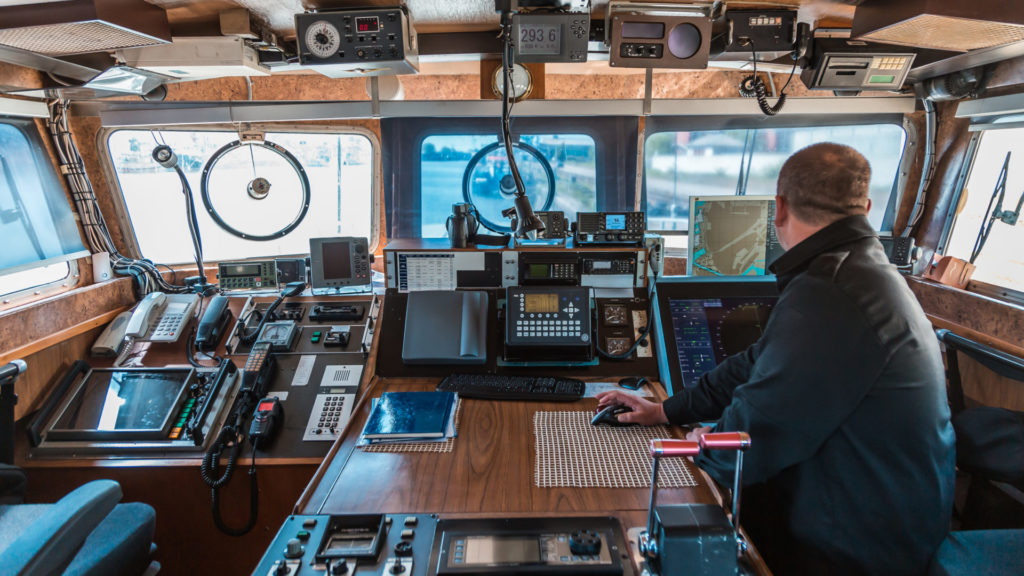
In the complex world of maritime defence, every decision can impact the safety and security of nations. The ability to swiftly move from data to actionable decisions is paramount. However, for many organizations within the industry, this transition often feels like navigating treacherous waters. Despite the abundance of data at their disposal, the journey towards informed decisions is often fraught with challenges and bottlenecks.
We understand the intricate dynamics that hinder the seamless flow of data to decisions within the maritime defence sector. Here are the top reasons why your logistics organization may struggle this way, and how innovative solutions can chart a course towards smoother supply chain operations:
- Data Silos and Fragmentation: One of the primary obstacles hindering quick decision-making is multiple data silos scattered across various systems and departments. In maritime defence logistics, data pertaining to inventory, vessel movements, maintenance schedules, and geopolitical factors are often stored in disparate systems, leading to fragmentation and inefficiencies in data utilization.
- Lack of Real-Time Visibility: In an industry where time-sensitive decisions are the norm, the absence of real-time visibility of critical metrics poses a significant challenge. Traditional systems can provide historical data, but the inability to access real-time information hampers the agility required to respond promptly to emerging situations such as security threats, supply chain disruptions, or operational anomalies.
- Complex Regulatory Compliance: Compliance with stringent maritime regulations adds another layer of complexity to decision-making processes. Navigating through regulations and ensuring adherence to standards while optimizing logistics operations requires robust systems capable of automating compliance procedures and providing actionable insights to decision-makers.
- Limited Predictive Analytics: While descriptive analytics offer valuable insights into past performance, the ability to forecast future scenarios is essential for proactive decision-making. Many logistics organizations in the maritime defence industry lack advanced predictive analytics capabilities, making it challenging to anticipate potential risks, optimize routes, or allocate resources effectively.
- Legacy Systems and Outdated Processes: Outdated legacy systems and manual processes impede the agility and responsiveness required in today’s landscape. Cumbersome workflows, redundant data entry, and reliance on paper-based documentation not only slow down operations but also increase the risk of errors and inefficiencies.
Addressing these challenges requires a concerted effort towards digital transformation. and the adoption of innovative supply chain software solutions tailored to the unique needs of the industry. Leveraging AI and ML solutions such as Larus’, logistics organizations can overcome the barriers inhibiting swift decision-making and gain a competitive edge in the evolving geopolitical landscape.
- Unified Data Platforms: Consolidating data from disparate sources into a unified platform facilitates seamless data integration and fosters collaboration across departments. A unified yet distributed data store enables stakeholders to access real-time information and gain holistic insights into maritime operations, thereby streamlining the decision-making processes.
- Predictive Analytics and AI-driven Insights: Harnessing the power of predictive analytics and AI-driven insights empowers logistics organizations to forecast demand, identify potential bottlenecks, and optimize resource allocation proactively. By analyzing historical data and extrapolating trends, decision-makers can make informed decisions and mitigate risks before they escalate.
- Cloud-based Solutions: Cloud-based solutions offer scalability, flexibility, and accessibility. They enable logistics organizations to adapt to evolving requirements and dynamic operational environments. Cloud platforms facilitate seamless collaboration, enhance data security, and ensure continuity of operations, even in the face of unforeseen disruptions.
- Automation and Robotics: Embracing automation and robotics technologies streamlines repetitive tasks, reduces human error, and accelerates decision-making processes. From autonomous vessels and drones to robotic warehouse systems, leveraging automation enhances operational efficiency and enables logistics organizations to focus on strategic initiatives.
The ability to swiftly move from data to decision with precision is imperative for success in the maritime defence industry. By addressing these challenges and embracing innovative supply chain software, logistics organizations can navigate through uncertainty with confidence, optimize resource utilization, and enhance operational resilience in an increasingly complex geopolitical landscape. As technology continues to evolve, the journey towards seamless data-driven decision-making promises to redefine the future of maritime defence logistics.

